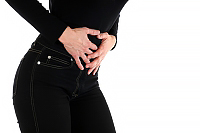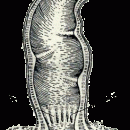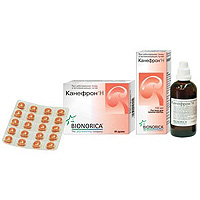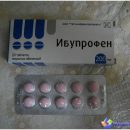What drugs are suitable for the treatment of cystitis, the need to consult a urologist. Cystitis in men and women, the best medicines for therapy of acute and chronic form of the disease.
Content
- Antibacterial drugs (antibiotics) when inflammation of the bladder
- Anti-inflammatory and immuno-fixing agents when cystitis
 Bright symptoms of inflammation of the mucous membrane of the bladder are considered to be pain at the bottom of the abdomen, frequent and painful urination, maybe the presence of blood in the urine. Treatment of cystitis (bladder inflammation) aims to eliminate the cause of its appearance — microbial inflammation in a complex with a weakened immunity. Diseases include fungi, bacteria and parasites. The development of cystitis in women contributes to a small distance from the exit of urethra to the entrance to the vagina and to the anal hole. Men cystitis can provoke urethritis and prostatitis due to the violation of urine outflow characteristic of these pathologies. With suspected cystitis, do not risk your health and go to the consultation to the urologist.
Bright symptoms of inflammation of the mucous membrane of the bladder are considered to be pain at the bottom of the abdomen, frequent and painful urination, maybe the presence of blood in the urine. Treatment of cystitis (bladder inflammation) aims to eliminate the cause of its appearance — microbial inflammation in a complex with a weakened immunity. Diseases include fungi, bacteria and parasites. The development of cystitis in women contributes to a small distance from the exit of urethra to the entrance to the vagina and to the anal hole. Men cystitis can provoke urethritis and prostatitis due to the violation of urine outflow characteristic of these pathologies. With suspected cystitis, do not risk your health and go to the consultation to the urologist.
Before starting treatment, you must pass diagnosis. Methods of diagnosis of acute and chronic cystitis include urine tests, cystography (urinary bubble radiological examination) and cystoscopy. Determine the type of pathogenic microorganism will help bacteriological analysis of urine with sowing for sensitivity to antibiotics. The results of the diagnosis give an idea of the place of propagation of inflammation, its degree, the form and availability of the tumor or stones in the bladder. Diagnostics makes it possible to competently plan treatment. Custit therapy includes the following groups of medicines:
- antibiotics;
- phytopreparations;
- anti-inflammatory drugs;
- probiotics;
- Immunofactants.
Antibacterial drugs (antibiotics) when inflammation of the bladder
 Antibiotics — The basis of the treatment of cystitis. But the specialist (urologist) should be prescribed a certain antibacterial agent, based on the results of the diagnosis. It is diagnostic studies that provide information on the sensitivity of individual pathogenic microorganisms to certain antibiotics. Antibiotics, widely used in the treatment of cystitis include nolitsin, monural, palin, nitroxoline, nitrofurantoin and ciprofloxacin. Consider the properties of some of them.
Antibiotics — The basis of the treatment of cystitis. But the specialist (urologist) should be prescribed a certain antibacterial agent, based on the results of the diagnosis. It is diagnostic studies that provide information on the sensitivity of individual pathogenic microorganisms to certain antibiotics. Antibiotics, widely used in the treatment of cystitis include nolitsin, monural, palin, nitroxoline, nitrofurantoin and ciprofloxacin. Consider the properties of some of them.
MONURAL — Safe and modern antibiotic wide range of action, coping with almost all pathogenic microorganisms when cystitis. It is convenient for use: Used once a day. Nolitsin — Also a modern antibacterial drug with large bactericidal activity. Nitrofurantoin is contraindicated to use in pregnant women and kidney diseases. Palin and Nitroxoline — older, but also proven drugs. Nitroxoline is also active against mushrooms of certain birth. Ciprofloxacin is effective, but when it is used, there are frequent cases of the manifestation of side effects. During pregnancy, antibiotics are not recommended, so instead of them for the treatment of cystitis apply phytopreparations. They are effective in bladder inflammation therapy, when severe pain and heat are not observed.
Anti-inflammatory and immuno-fixing agents when cystitis
If cystitis is accompanied by severe pain, then urologists are usually prescribed non-steroidal anti-inflammatory funds (NSAIDs). Not bad examples of anesthetic NSAIDs are nourofen, diclofenac and indomethacin. To remove spasms, Ketorol, but SPAP or Baratgin are successfully used.
Immunostimulating drugs, like Warryaks, act by type of vaccine: they contain particles of infectious pathogens, which will force the body to develop immunity to them. An important aspect in the treatment of cystitis is the intestine microflora (in women also vagina). Violations of its condition contribute to the development of inflammation in the bladder. Therefore, after an antibacterial course of treatment it is useful to take probiotics and drugs with lactobacteriums.









